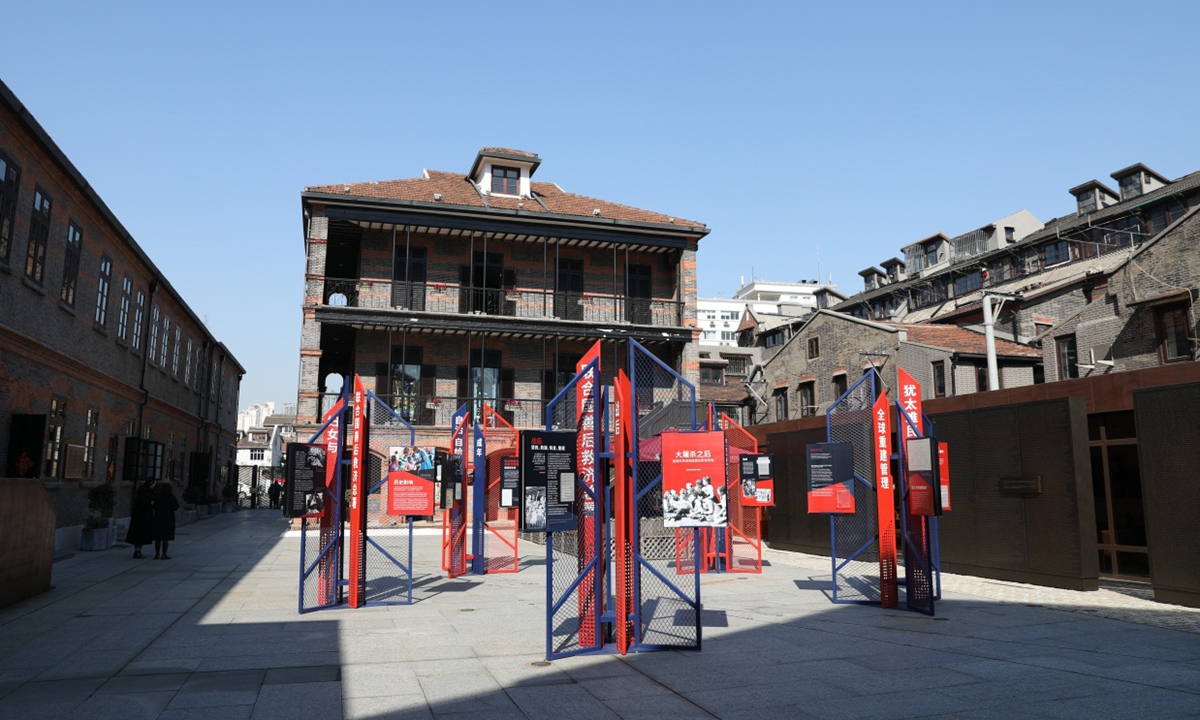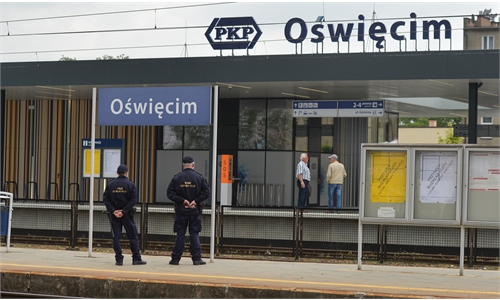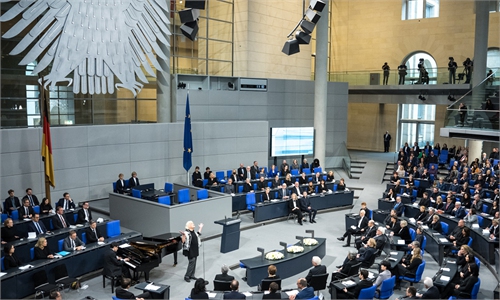ARTS / CULTURE & LEISURE
Exhibition tells stories of Holocaust survivors

Signs for the exhibition Displaced Persons and Displaced Persons Camps outside the Shanghai Jewish Refugees Museum Photo: Courtesy of the Shanghai Jewish Refugees Museum
To commemorate Holocaust survivors, the exhibition Displaced Persons and Displaced Persons Camps is currently being held at the Shanghai Jewish Refugees Museum in the city's downtown Hongkou district, which sheltered thousands of Jewish refugees from Nazi persecution in the 1930s and 1940s.
Set to run until March 10, the exhibition co-hosted by the United Nations and the museum shows visitors how Holocaust survivors relocated and rebuilt their lives with the help of the United Nations Relief and Rehabilitation Administration and people worldwide.
About 20,000 European Jewish refugees came to Shanghai during WWII, taking long journeys to reach the city. While times were hard, they were able to survive and make a life for themselves thanks to the life-saving assistance of people of Shanghai.
This remarkable feat was described by Holocaust historian David Kranzler as the "Miracle of Shanghai."
Together, the people of Shanghai and the Jewish refugees supported each other through thick and thin, and welcomed the global victory against fascism, museum curator Chen Jian said in a speech at the opening ceremony on Monday.
"Today, this history is also a deep interpretation of the concept of 'building a community with a shared future for mankind' that we are advocating today," Chen told the Global Times.
At the ceremony, Consul General of Israel in Shanghai Ravit Baer expressed gratitude for Shanghai's efforts in protecting the Jewish refugees and supporting the local Jewish community.
"The strong Jewish community that developed here, often assisted by their Chinese neighbors in what became known as 'Little Vienna,' leaves a legacy that connects the Jewish and Chinese people to this day," she said.
Shanghai, now a home to the descendants of many Jewish refugees, was a distant and unfamiliar eastern city to the Jews who arrived there some 80 years ago. It was a journey full of unknowns, but at that time they had few other choices.
"They [today's descendants] would not exist if their grandfathers had stayed in Germany. They came here, and this is the place where they survived," Baer told the Global Times after the ceremony.
"This was the only place they could go to, but sometimes the most beautiful stories come out of necessity - they lived here and got to know the Chinese people," she added.
"I think up until today, every one of the survivors and their descendants have a connection to China."
Besides the residents of Shanghai, numerous kind and upright people worldwide did all they could to protect Jews from Nazi persecution during WWII.
At the Monday ceremony, five consuls general of the US, the UK, France, Germany and Italy in Shanghai shared stories from the people in their countries who made great efforts to help rescue and shelter Jewish refugees. From an embassy official who bent the rules to issue Jews visas to a language teacher who built a children's home for Jewish and Spanish refugee children, they protected Jews from the Holocaust at great risk and some of them gave their lives to help others.
Friday marked the International Day of Commemoration in Memory of the Victims of the Holocaust. More than 300,000 Jews were displaced by the Holocaust, which was "an unprecedented number at the time," said Vanno Noupech, the United Nations High Commissioner for Refugees (UNHCR) representative in China.
The number of people forced to flee their homes today, however, would reach over 100 million, Noupech said in a speech at the ceremony. The need to protect, shelter and help refugees and the communities who host them has grown exponentially and is today heightened by global food insecurity, new conflicts, climate change and growing inequalities fueled by the COVID-19 pandemic, Noupech stressed.
China's attention and support can play a critical role in providing humanitarian relief and addressing global forced displacement, said Noupech.
"UNHCR is working closely with many parts of the Chinese government and Chinese embassies to deliver life-saving assistance to people forced to flee," he told the Global Times.
"UNHCR appreciates China's direct support to our operations," Noupech added.
"In addition to fruitful cooperation with the Chinese government, we have a growing collaboration with Chinese companies, foundations and universities."




